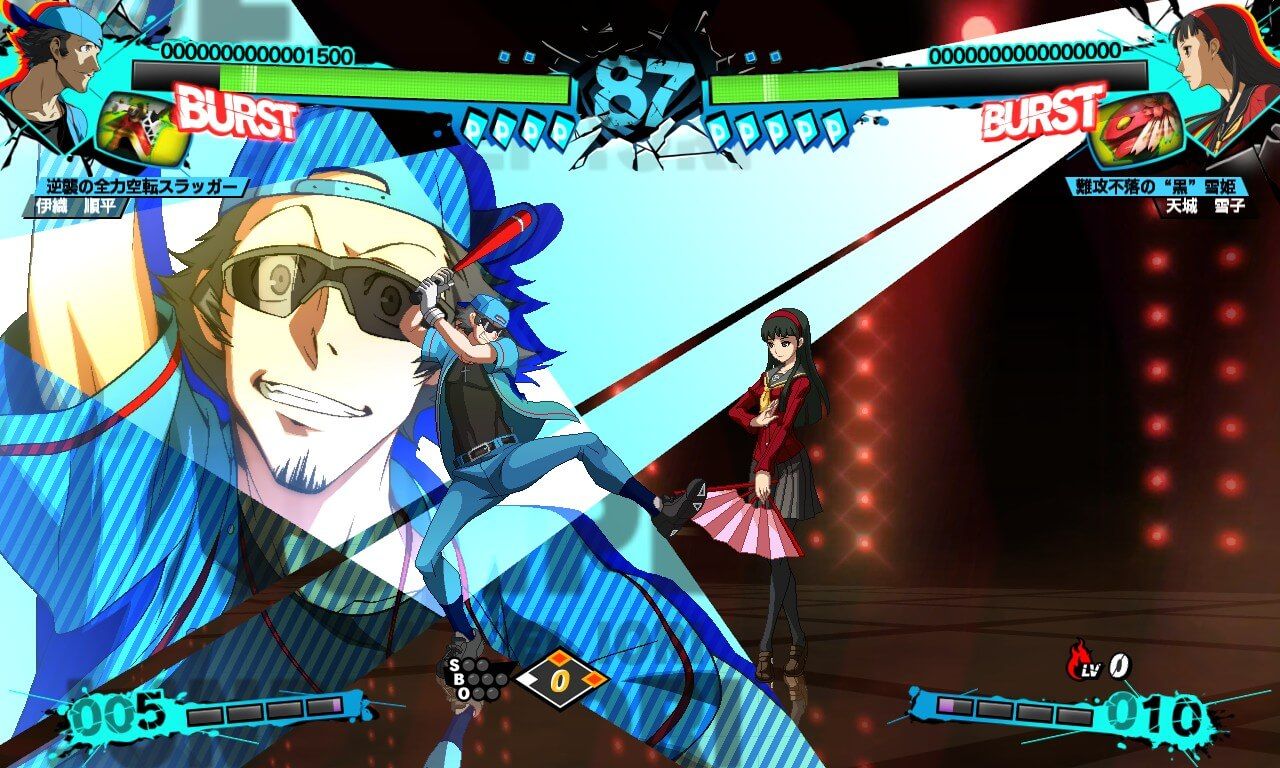[HTML1]
At one point, the idea of a fighting game based on a turn-based RPG franchise might have seemed like a ridiculous idea, but Persona 4 Arena proved that it could be a match made in heaven. Following the onset of another mystery, the Inaba Investigation Team must return to the Midnight Channel with some familiar and not-so-familiar faces for Persona 4 Arena Ultimax. Building on the successes of the last title, this return to the Persona franchise is shaping up to be a mystery worth solving.
For those unfamiliar with the Persona series, it's a spinoff of Atlus' Megami Tensei RPG franchise whose recent release on the 3DS - Shin Megami Tensei IV - made quite a splash, impressing fans and franchise newcomers. As if to complicate things further, the Persona 4 Arena series is then a spinoff of the fourth Persona title. Despite being a sequel of a spinoff of a spinoff though, Persona 4 Arena Ultimax is a fighting game that people should be paying attention to.
As one might expect from a fighting game sequel, many of the core gameplay mechanics remain largely unchanged from its predecessor. While there are definite tweaks to the formula, the biggest change comes in the form of the newest additions to the game's cast. In this case, not only will players get access to shadow versions of the majority of the cast, but the game will also sport five new playable characters, DLC notwithstanding.
Fans will notice Persona 3 veterans Yukari, Junpei and Ken as well as Persona 4 alumni Rise. In addition to these characters is series newcomer Sho. For those whose eyes glaze over at the mention of these names though, it should be noted that one of biggest draws of the Persona series is in its downright wacky lore and characters. Having got a chance to test-drive some of these characters, I can say that they live up to the craziness that would be expected from a Persona title.
Junpei Iori acts as the resident baseball expert of the cast. Where most titles would simply give him a baseball bat and be done with it, Persona 4 Arena Ultimax instead makes his baseball capabilities a major gameplay mechanic. As he manages to land hits with his bat or reflect back projectiles with well-timed swings, a baseball scorecard on-screen begins to fill up. As Junpei scores runs and fills up the bases, his attacks become increasingly stronger. Likewise, missing with attacks build up strikes and getting hit provide the player with “outs.”
Rise Kujikawa on the other hand diverges from the fighting game formula to a lesser degree than Junpei. As a massive celebrity within the game world and sining superstar, almost all of her moves are based off of this larger-than-life persona. Toting around a microphone stand wherever she goes, Rise’s attacks are highlighted by the posing and posturing that one might expect from an idol. This makes gauging her movements in a competitive manner incredibly difficult because her tells are far less prominent and her moves leading up to attacks rarely look as such.
The shadow versions of these characters on the other hand change up their respective playstyles by putting an emphasis on their offensive abilities and highlighting the darker, repressed aspects of their respective personalities. These forms not only provide nods to the series’ past titles but also provide a surprisingly deep look into the minds of the characters. Whereas one would rarely stop to question the motives of Scorpion in Mortal Kombat X, the feeling of life present in Persona’s characters is a potent and engrossing thing.
Outside of the new characters, changes to the gameplay formula are less drastic. Arguably the largest of which though is the change to how each character’s demon-like protector - their persona - is summoned into battle. While the original title provided a risk and reward system whereby if the persona got hit too many times, it would be banished for a set amount of time. The number of hits required to banish a persona was the same for each character but now, stronger characters will find it easier to lose their personas, deepening this risk and reward gameplay.
In the end though, its the interesting and relatable characters that have always stolen the Persona show. Persona 4 Arena Ultimax is no different from its predecessors in its expert portrayal of these varied and sometimes-ridiculous characters. It may bear the look of a niche title on the outset, but Ultimax is a game that is surprisingly accommodating to newcomers and veterans alike. Whether you're a fighting game enthusiast or interested in a unique portrayal of character, this latest Persona spinoff is shaping up to be very much worth your time.
Are you interested in diving into another Persona-based fighting game? If you are new to the series, what is it about Persona that first strikes you?
_____
Persona 4 Arena Climax crashes onto PS3 and Xbox 360 on September 30, 2014.
Follow Ryan on Twitter @ThatRyanB.


